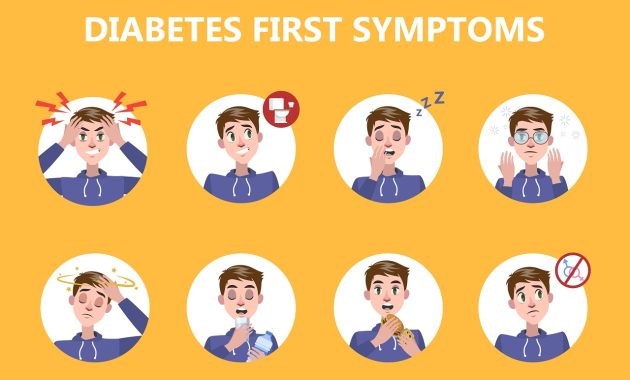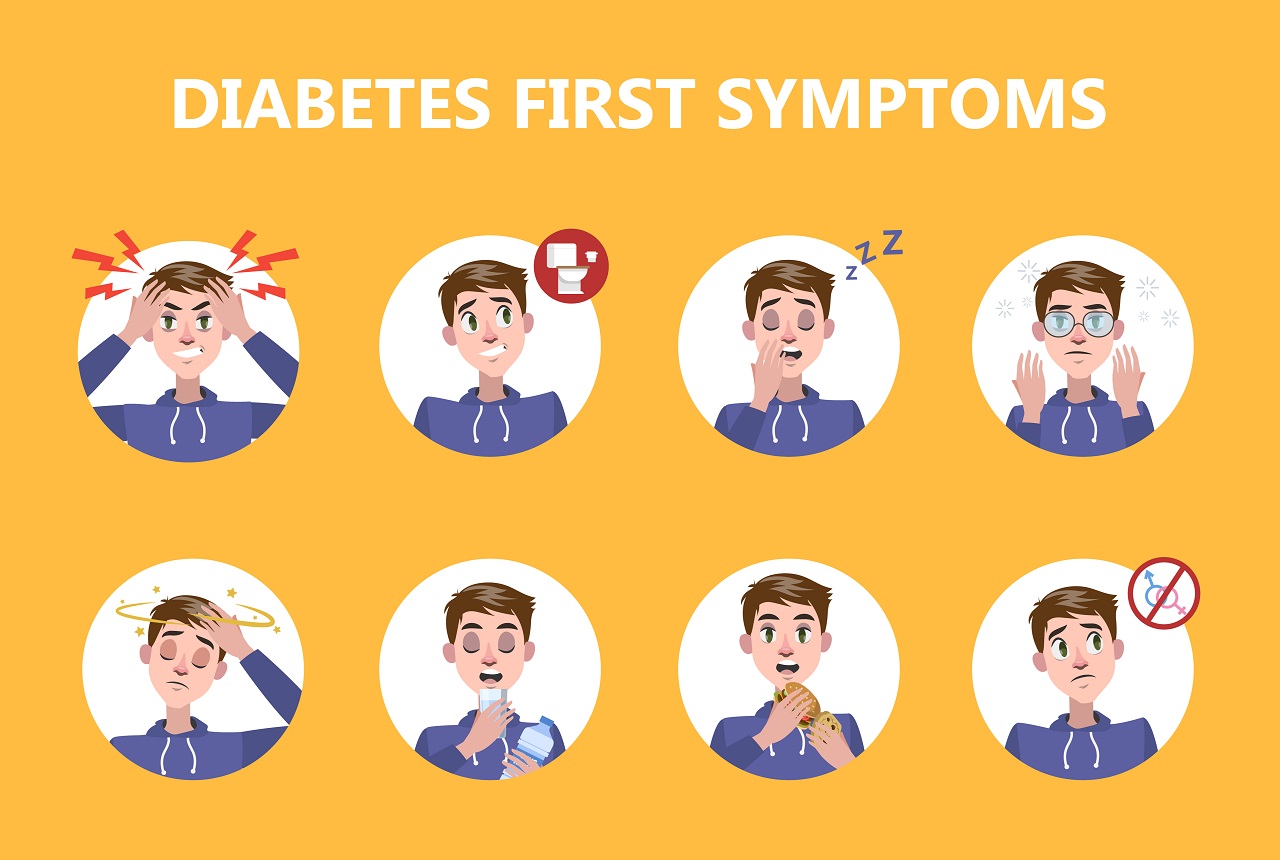
Unmasking the Culprits: How to Identify What Makes Your Diabetes Worse
Managing diabetes is a marathon, not a sprint. It requires vigilance, understanding, and a proactive approach to avoid complications. But what if your efforts aren’t yielding the desired results? What if your blood sugar levels remain stubbornly high, despite your best intentions? The answer, in many cases, lies in identifying the factors that are actively making your diabetes worse. This article will guide you through the process of pinpointing these culprits and taking control of your health. We will delve into the common triggers, the subtle indicators, and the actionable steps you can take to mitigate their impact. Understanding how to identify what makes your diabetes worse is the first, critical step toward effective diabetes management.
Understanding the Complexity of Diabetes
Diabetes is a complex metabolic disorder. It impacts how your body processes glucose, the primary source of energy for your cells. This process is influenced by a myriad of factors, ranging from genetics and lifestyle choices to medications and underlying health conditions. Therefore, a one-size-fits-all approach to diabetes management is rarely effective. Personalization is key, and that begins with a thorough understanding of what exacerbates your specific condition. Knowing how to identify what makes your diabetes worse is crucial to tailor your treatment.
There are two main types of diabetes: Type 1 and Type 2. Type 1 diabetes is an autoimmune condition where the body attacks and destroys the insulin-producing cells in the pancreas. Type 2 diabetes is characterized by insulin resistance, where the body doesn’t use insulin properly, and eventually, the pancreas may lose its ability to produce enough insulin. Both types, however, share a common thread: high blood sugar levels, or hyperglycemia, which can lead to a host of serious health problems. This underscores the urgency of learning how to identify what makes your diabetes worse.
Lifestyle Factors: The Usual Suspects
Lifestyle plays a significant role in diabetes management. Certain habits can significantly worsen your condition. Recognizing these factors is essential for effective control.
Dietary Choices
The food you eat has a direct impact on your blood sugar levels. A diet high in carbohydrates, especially refined carbs like white bread, pasta, and sugary drinks, can cause rapid spikes in glucose. Processed foods, often laden with hidden sugars and unhealthy fats, can also contribute to poor blood sugar control. Focusing on a balanced diet, rich in whole grains, lean proteins, and plenty of non-starchy vegetables, is vital. Being mindful of portion sizes and carbohydrate counting can also be beneficial. Understanding how dietary choices influence your blood sugar is a key aspect of how to identify what makes your diabetes worse.
Physical Inactivity
Regular physical activity is a cornerstone of diabetes management. Exercise helps improve insulin sensitivity, allowing your body to use glucose more effectively. It also aids in weight management, which is crucial for people with Type 2 diabetes. Conversely, a sedentary lifestyle can worsen insulin resistance and contribute to elevated blood sugar levels. Aim for at least 150 minutes of moderate-intensity exercise per week, such as brisk walking or cycling. [See also: Benefits of Exercise for Diabetes Management] This is a good way to know how to identify what makes your diabetes worse.
Stress and Sleep Deprivation
Chronic stress and lack of sleep can significantly impact blood sugar levels. Stress hormones, such as cortisol, can raise blood glucose. Poor sleep can disrupt the body’s natural hormone rhythms, further exacerbating blood sugar control. Practicing stress-reduction techniques, such as yoga or meditation, and prioritizing adequate sleep can be beneficial. Knowing how to identify what makes your diabetes worse includes recognizing the impact of these factors.
Medications and Their Impact
While medications are essential for diabetes management, some can inadvertently make your condition worse if not taken correctly or if interactions occur. It is important to be aware of the potential pitfalls.
Medication Errors
Missing doses, taking incorrect dosages, or administering medication at the wrong time can lead to fluctuations in blood sugar levels. Always follow your doctor’s instructions carefully and use a pill organizer if needed. Be sure to understand the side effects of your medications. Knowing how to identify what makes your diabetes worse includes understanding your medication regimen.
Interactions with Other Medications
Certain medications can interfere with diabetes medications or affect blood sugar levels. Always inform your doctor about all the medications and supplements you are taking, including over-the-counter drugs. Some medications, such as corticosteroids, can raise blood glucose. Be aware of potential drug interactions. This is a key step in how to identify what makes your diabetes worse.
Underlying Health Conditions: The Hidden Contributors
Certain underlying health conditions can complicate diabetes management and worsen blood sugar control. Recognizing these conditions is a crucial part of the puzzle.
Infections
Infections, such as the flu or a urinary tract infection, can trigger the release of stress hormones, leading to elevated blood sugar levels. They can also make it difficult for the body to use insulin effectively. It is important to get vaccinated against the flu and pneumonia and to seek prompt medical attention for any infections. This helps to see how to identify what makes your diabetes worse.
Cardiovascular Disease
People with diabetes are at an increased risk of cardiovascular disease. Conditions like heart disease can affect blood flow and the body’s ability to use insulin. Managing your cardiovascular health, through a healthy diet, exercise, and medication if needed, is crucial. This helps you to learn how to identify what makes your diabetes worse.
Kidney Disease
Diabetes is a leading cause of kidney disease. Kidney damage can affect the body’s ability to filter waste and regulate blood sugar. Regular kidney function tests are essential. Managing blood sugar and blood pressure can help protect kidney health. Discovering how to identify what makes your diabetes worse may involve looking at your kidney health.
Detecting the Warning Signs
Recognizing the early warning signs of worsening diabetes is crucial for preventing complications. Being proactive can make a significant difference in your health.
Persistent High Blood Sugar Levels
Consistently elevated blood sugar levels, even with medication and lifestyle modifications, are a red flag. Monitor your blood sugar regularly and keep a log of your readings. Discuss any persistent high readings with your doctor. You can learn how to identify what makes your diabetes worse by monitoring your blood sugar levels.
Increased Thirst and Frequent Urination
These are classic symptoms of hyperglycemia. When blood sugar levels are high, your kidneys try to flush out the excess glucose through urine, leading to increased thirst and frequent urination. These signs can show you how to identify what makes your diabetes worse.
Fatigue and Blurred Vision
High blood sugar can cause fatigue and blurred vision. These symptoms can indicate that your diabetes is not well-controlled. Seek medical attention if you experience these symptoms. Understanding how to identify what makes your diabetes worse includes recognizing these signs.
Taking Action: Steps to Improve Control
Identifying the factors that worsen your diabetes is only the first step. The next step is to take proactive measures to improve your control.
Consult with Your Healthcare Team
Work closely with your doctor, diabetes educator, and other healthcare professionals. They can help you identify the specific factors that are affecting your blood sugar levels and develop a personalized management plan. This is crucial in the process of how to identify what makes your diabetes worse.
Adjust Your Lifestyle
Make necessary changes to your diet, exercise routine, and stress management techniques. These modifications can significantly improve your blood sugar control. Adjusting your lifestyle is a key part of how to identify what makes your diabetes worse.
Review Your Medications
Ensure you are taking your medications correctly and that they are the right ones for you. Discuss any concerns or side effects with your doctor. The review of your medications is helpful to see how to identify what makes your diabetes worse.
Monitor Your Progress
Regularly monitor your blood sugar levels and keep track of your progress. This will help you identify what works and what doesn’t. You can use this to see how to identify what makes your diabetes worse.
Conclusion: Empowering Yourself for Better Health
Managing diabetes is an ongoing journey. It requires a commitment to learning, adapting, and taking proactive steps to control your condition. By learning how to identify what makes your diabetes worse, you empower yourself to make informed decisions, implement effective strategies, and ultimately, live a healthier and more fulfilling life. Remember, you are not alone. With the support of your healthcare team, family, and friends, you can successfully navigate the challenges of diabetes and achieve optimal blood sugar control. Taking the steps to learn how to identify what makes your diabetes worse is a crucial step toward success. [See also: Diabetes and Mental Health]

